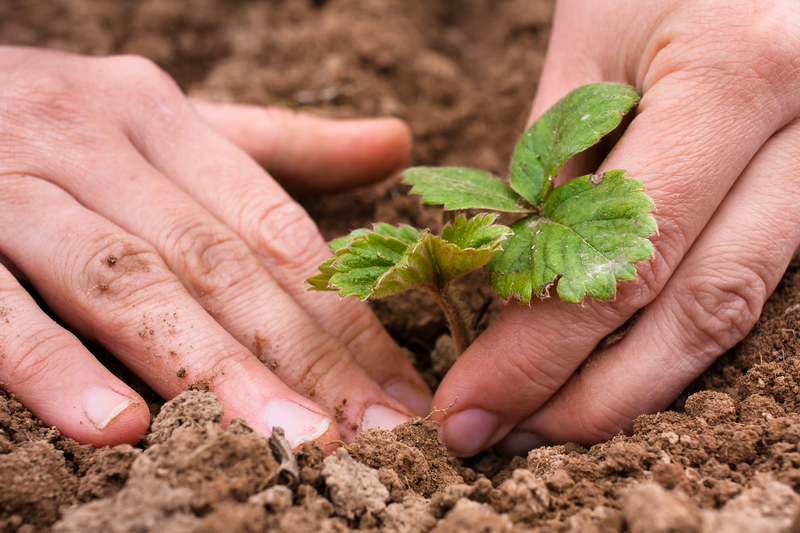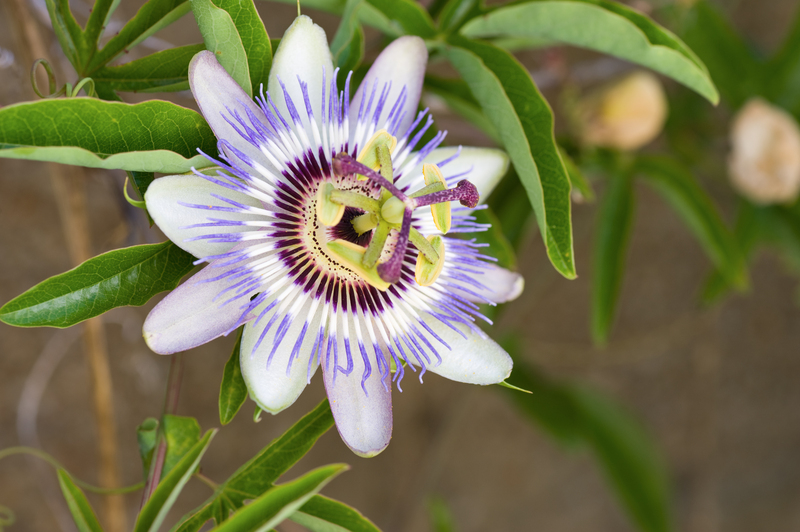For Starter Gardeners: 9 Invaluable Tips Await
Posted on 23/05/2025
For Starter Gardeners: 9 Invaluable Tips Await
Are you excited to create your first garden? Starting a garden can be one of the most rewarding hobbies, offering fresh food, beautiful blooms, and a sense of accomplishment. However, for those new to gardening, the process might seem daunting. Fear not! This comprehensive guide presents expert tips perfect for beginner gardeners. Read on to uncover nine invaluable gardening lessons that will put you on the path to a lush, vibrant, and thriving green space.

1. Plan Your Perfect Plot
Before buying seeds or plants, plan your garden layout. This first step will influence everything else you do as a new gardener. Garden planning includes:
- Choosing the right location--most edible and ornamental plants require at least 6 hours of sunlight each day.
- Determining your garden size--start small; a 4x8 or 4x4 raised bed, or even a couple of containers, can produce abundant growth for beginners.
- Researching your growing zone--find out your USDA hardiness zone to choose plants that thrive in your climate.
- Mapping out planting areas--consider companion planting, pathways, and future expansion to maximize your space.
With a thoughtful plan, you lay the groundwork for a productive garden and avoid common pitfalls that can discourage new gardeners.
2. Start with Easy Crops
For new gardeners, success breeds motivation. Select easy-to-grow plants that offer quick rewards. By choosing the best vegetables for beginners and reliable flowers, you'll be more likely to stick with gardening year after year.
Best Beginner-Friendly Vegetables
- Lettuce & greens--quick-growing, minimal care, and ready to harvest in weeks.
- Radishes--work well in tight spaces and mature in less than a month.
- Tomatoes--cherry or bush varieties flourish in containers or small beds.
- Green beans--bush or pole beans reward you with a generous harvest all summer.
Easiest Annual Flowers
- Sunflowers--tall, cheery, and loved by pollinators and birds.
- Marigolds--great for borders and natural pest control.
- Zinnias--offer endless blooms in brilliant colors.
- Nasturtiums--edible and add a splash of color to salads and your garden.
Choosing beginner gardening plants increases your chances of an enjoyable, bountiful first season.
3. Invest in Essential Tools
A gardener's toolkit doesn't have to be vast, but having the right garden tools makes every job easier. Invest in sturdy basics such as:
- Trowel and hand fork: for digging small holes and loosening soil.
- Watering can or hose with a spray nozzle: ensures gentle, even watering.
- Pruners or scissors: for trimming dead or overgrown foliage.
- Gardening gloves: protect hands from thorns and dirt.
- Spade or shovel: for larger digging and mixing tasks.
Look for ergonomic designs and durable materials in your garden tools--they'll last longer and make tasks more enjoyable.
4. Focus on Healthy Soil
The foundation of any successful garden is healthy soil. As a starter gardener, learning about soil preparation will turbocharge your plant growth. Here are top tips to improve your soil:
- Test your soil for pH and nutrients. Many garden centers offer affordable soil test kits.
- Add compost or organic matter to boost fertility, structure, and water retention.
- Avoid frequent tilling--it can harm beneficial organisms living in the soil.
- Mulch liberally to conserve moisture, suppress weeds, and enrich the soil as it decomposes.
Remember, good gardens start with good ground. Investing time in soil care pays off with stronger, healthier plants.
5. Master the Art of Watering
Watering is crucial--but many starter gardeners water incorrectly. Understanding when and how much to water can determine the fate of your plants.
- Water deeply but less often. This encourages roots to grow deeper, making plants more drought-resistant.
- Water in the early morning. This gives plants time to absorb water before the sun evaporates it and helps prevent fungal diseases.
- Avoid watering leaves--target the soil instead to limit disease.
- Check the soil before watering. Stick your finger into the soil; if it feels moist two inches down, wait another day.
- Mulch--this is also essential for keeping soil evenly moist and reducing the need for frequent watering.
A strong watering routine makes a world of difference for beginner gardeners.
6. Weed Regularly for a Healthy Garden
Weeds compete with your crops for water and nutrients, and can quickly spread if ignored. Prevent problems early with these helpful strategies:
- Hand-weed weekly. Young weeds are easier to pull, and you prevent them from seeding.
- Mulch--yes, again! Mulching blocks sunlight and stops weed seeds from sprouting.
- Hoe shallowly around the base of plants to avoid disturbing their roots.
- Keep your garden edges tidy to stop invasive weeds from creeping in.
With a little diligence, weed control for beginners can become a simple routine rather than a massive chore.
7. Fertilize Wisely
Starter gardeners are often tempted to douse their plants with fertilizer in hopes of faster growth. But plants can only absorb a certain amount of nutrients at once, and excessive fertilizer can burn roots or cause environmental harm.
- Add compost annually. This slow-release "superfood" improves soil health and supports sustained growth.
- Use balanced, slow-release fertilizers sparingly at the right time--usually early in the growth season or as recommended for your plant type.
- Always follow package directions to avoid over-application.
- Learn your plants' needs--some, like beans, require little fertilizer, while heavy feeders (like tomatoes) may need more.
Smart fertilizing supplies what your plants need, when they need it--helping you grow a lush garden naturally.
8. Embrace the Power of Mulch
Mulch is every gardener's secret weapon. For starter gardeners, mulching can significantly reduce labor, improve plant health, and enhance the beauty of your garden.
- Suppresses weeds--a layer of organic mulch blocks unwanted growth.
- Retains moisture-- reduces evaporation, so you water less often.
- Moderates soil temperature--protects roots from hot summers and freezing winters.
- Adds organic matter--as mulch breaks down, it nourishes your soil.
- Improves garden appearance--gives beds a neat, finished look.
Choose between straw, shredded leaves, wood chips, or compost, and lay a 2-3 inch layer around your plants. Keep mulch a few inches away from stems to avoid rot. This one habit alone can transform the experience of a beginner gardener.
9. Learn, Observe, and Enjoy the Journey
Above all, gardening is a process of learning and discovery. Even the most experienced gardeners make mistakes, so don't be discouraged by setbacks. With each season, you'll develop new skills, preferences, and knowledge.
- Observe your garden daily to catch problems early--look for pests, wilting, or new flowers and fruit.
- Keep a garden journal tracking what you plant, weather conditions, and what works (or doesn't).
- Connect with local gardeners. Gardening clubs, online forums, and neighbors are fantastic sources of advice and inspiration.
- Read reputable gardening books and blogs to expand your knowledge.
- Celebrate your progress--each sprouting seed or blooming flower is a victory!
Remember, the true joy of gardening comes from being part of the natural world and witnessing the transformation you create. Stay curious, persistent, and open to new experiences in your garden journey.
Bonus Tips for Aspiring Gardeners
- Start a compost pile--turn kitchen scraps into garden gold!
- Label your plants--makes tracking growth and learning easier.
- Use organic pest controls--protect your plants and the environment with natural methods.
- Grow what you love--focus on favorite flowers or vegetables to keep gardening fun and motivating.

Common Mistakes Beginner Gardeners Should Avoid
Being aware of frequent errors can save time and frustration. Here's what to look out for:
- Overwatering or underwatering--both can stress or kill your plants.
- Planting too densely--crowded plants don't get enough air and light.
- Neglecting soil health--poor soil leads to poor results.
- Impatience--gardening takes time! Not every seed will sprout overnight.
Conclusion: Your Gardening Adventure Starts Now!
The world of gardening is wide and wonderful, filled with endless possibilities for every starter gardener. With these nine invaluable tips at your side, you are better equipped to create a healthy, sustainable, and beautiful garden full of the flowers, herbs, or vegetables you've always dreamed of.
Remember: gardening is a learning process--don't be afraid to experiment, make mistakes, and grow alongside your plants. Soon, you'll reap the literal fruits of your labor, as well as all the peace, health, and joy that comes from nurturing the earth.
Happy gardening, and may your beginner garden flourish beyond your wildest dreams!
Start today--your green thumb awaits!
Latest Posts
Must-Have Equipment to Elevate Your Gardening Game
Outdoor Zen Gardens: Crafting Peaceful Escapes
Orchid Care Made Simple and Stunning



